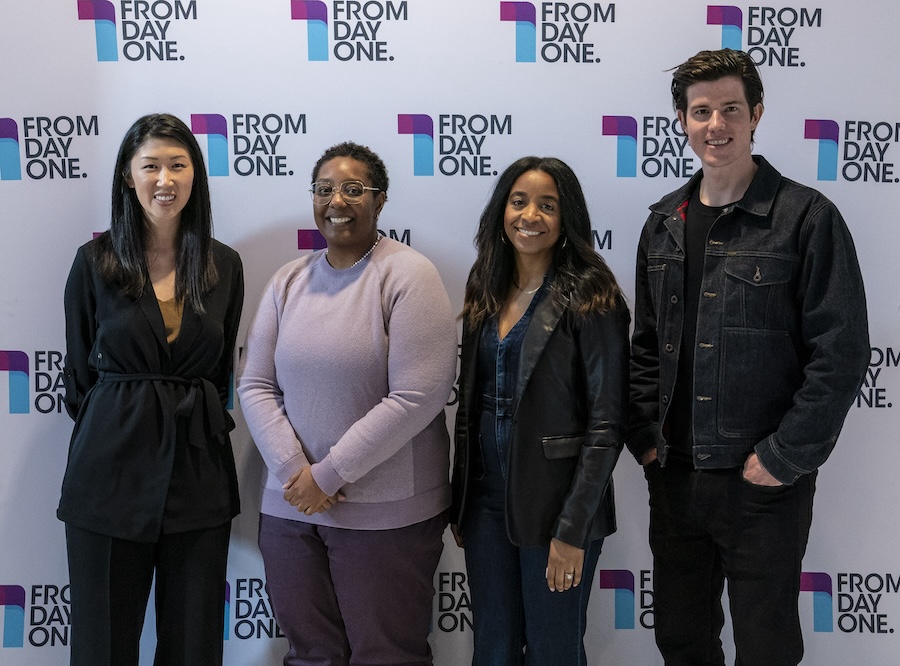Crafting Employee Journeys with Career Growth in Mind


Today, employees crave transparent career growth in their organizations, with an overwhelming 73% stating that they want visibility about these opportunities. In contrast, 61% of employees are more likely to leave their jobs if there is no visibility, showing how career growth can have a direct impact on employee retention and engagement.
For Hannah Lucille, vice president of people and culture at Warner Bros. Discovery, transparency on career growth needs to begin even before an employee enters the company.
“Career expectations start as early as when recruiters reach out to candidates. Recruiters need to understand what these candidates’ career ambitions are and make sure that we’re feeding that back into all the conversations,” Lucille said.
At From Day One’s Seattle conference, Lucille and other leaders joined From Day One’s co-founder Steve Koepp in a discussion on career growth, highlighting how leaders can effectively support employees in finding their next steps.
Leaning into Mentorship, Networking, Sponsorship
Career growth often relates to tangible goals like promotions or upskilling. However, career growth is hard to exist without the invisible parts of career development, said Dave Wilkin, founder of Ten Thousand Coffees.
85% of jobs are filled by networking, underlining the relationship of strong connections with future job opportunities. “Your network is your net worth. If we can create networks, we create more opportunities and more opportunity lattices,” Wilkin said.
But knowing someone isn’t enough to get someone their next job or career movement, Wilkin said.
“Competency around how to turn networks into impact is non-existent. To make opportunity happen, you need to create a conversation that turns connections into impact,” Wilkin said. “We want to make sure that when we’re creating conversation pathways, we’re being declarative on whether that relationship is a sponsorship, connection, or an onboarding buddy to help new hires accelerate.”

Relationships like mentorships and sponsorships can be beneficial to employees in navigating career growth and opportunities. In a study on mentorship, researchers found that while 76% of employees believe mentorship is important, only 36% had a mentor.
To Ambra Benjamin, vice president of tech recruiting and operations at software company Datadog, debunking some common perceptions about mentorships can help people find those crucial relationships.
“People look at mentorship and think they have to find a senior employee who’s at a place in their career that they’re not,” Benjamin said. “But my first and best mentor at Facebook was significantly more junior than me. He was having success, and I wasn’t, and I asked him to mentor me. Mentorship can just be helping you with a certain skill or an area where you’re not proficient and having someone more proficient than you be in that role.”
Building a Safe Culture to Talk About Career Growth
Leaders who hold frequent check-ins with their employees on career growth opportunities can find themselves reaping the benefits. In one study, researchers found that 82% of employees who have career conversations with their manager more than once a month were highly engaged at work compared to 53% of those who only talk about their career once a year or less.
Having conversations is only a part of the equation, Lucille says. To effectively support employees, leaders need to allow employees to discuss their career goals in a safe environment.
“Verbalizing career growth sometimes can be pretty intimidating because people fear the repercussions of those conversations, thinking their managers won’t be as invested anymore or they won’t give them the top reward because they know they are looking for other opportunities,” Lucille said. “But it's important to build it into the culture with hiring managers to ask about career goals and make it a two-way conversation so that there's no surprises. We’re far more likely to be able to co-create another opportunity for employees that way.”
For the first time five generations are in the workforce, signaling a change to traditional mindsets to career growth and the approach to conversations about career growth. To Roz Francuz-Harris, vice president of talent acquisition for real estate marketplace Zillow, leaders need to adapt their strategies accordingly.
“One person’s question about those next steps is not the same with a different generational person but it doesn’t mean that their value is any less; it just means we all want the same things but ask those things are different,” Francuz-Harris said. “As HR professionals, we have to build a program for hiring managers to run this type of process to seek out career growth for their employees, and then help them navigate which avenues to find it.”
Wanly Chen is a writer and poet based in New York City.
The From Day One Newsletter is a monthly roundup of articles, features, and editorials on innovative ways for companies to forge stronger relationships with their employees, customers, and communities.